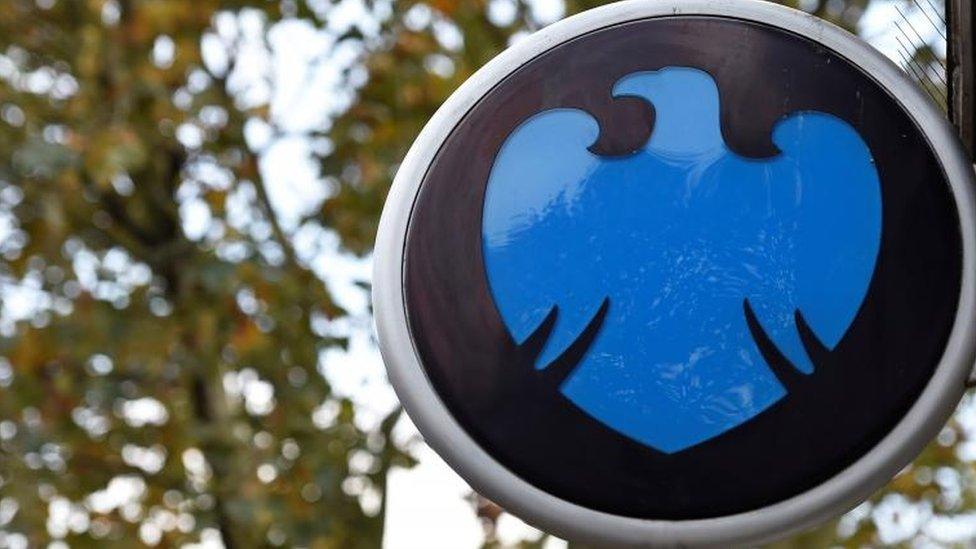Why Barclays came under SFO fire
- Published

Former top executives at Barclays will be the first senior managers to face criminal charges over their activities during the financial crisis nearly a decade ago.
A five-year Serious Fraud Office (SFO) inquiry will see charges brought against both Barclays PLC, the holding company of Barclays Bank (an important distinction as I'll try and explain later) as well as four executives, including former chief executive John Varley, and Roger Jenkins, who was head of investment banking and wealth management for Barclays in the Middle East.
The charges relate to an injection of cash that Barclays received from Middle East investors in 2008.
Taxpayer bailouts of freewheeling high-paying banks stoked public anger and contributed to the loss of trust in business that can be seen in every line of both main parties' manifestos going into the recent election. Which begs a question. Why, over the past decade, has the SFO been at its most dogged in the pursuit of a bank that DIDN'T require a taxpayer bailout?
In fact, it was Barclays' very efforts to SPARE the taxpayer that gave rise to this investigation.
In October 2008, around the time that Lloyds and RBS were being propped up with taxpayer money, Barclays raised £7.3bn from investors in the Middle East, including Qatar Holdings - a state owned investment fund.
There are two features of this deal that prompted investigation.
First was a payment to Qatar Holding - which was initially not disclosed - for "advisory" services. Barclays later admitted that £332m was paid to this company over five years. The charge is essentially that this advisory agreement sweetened the deal for Barclays' new benefactors for non-existent advice.
Second was a loan of £2bn extended by Barclays to the Qataris at around the time of the investment. An adviser to a separate investor has claimed in court that Barclays was lending to Qatar Holding to fund its investment in Barclays shares. The allegation essentially was that the bank was lending to itself: a very big no-no with banking regulators and today the SFO charged that this amounted to unlawful financial assistance.
Roger Jenkins has said he will vigorously defend himself against the charges. Barclays has said it is considering its position and is waiting for further details of the charges.
The BBC understands that Barclays PLC (the holding company for the operating company Barclays Bank) is considering pleading guilty to the charges. Not because they accept they acted wrongly, but if pleading guilty means that it can continue its operations unimpaired, while accepting a fine in the low hundreds of millions of pounds, then it might enable it to move on from an episode that has provided another unwelcome distraction to an entirely new management team.
That decision is thought to depend on whether the SFO brings similar charges against the operating company (Barclays Bank PLC rather than Barclays PLC). So far it has not, but Barclays acknowledged this morning that this remains a possibility.
Companies often go to extraordinary lengths to avoid criminal proceedings as they can lead to them being barred from bidding from contracts in certain countries - including the US.
Jet engine maker Rolls Royce agreed to pay £671m to settle corruption cases spanning nearly 30 years. A criminal conviction could have barred it from winning civil and military aviation contracts in the US.
In that case, the judge took the interests of thousands of employees into account while also pointing to the high level of co-operation it received from Rolls Royce and the installation of a new leadership team.
By charging the holding company rather than the bank, it would appear the SFO has considered the damage a conviction against the UK's last full service retail and investment bank would cause.
Barclays might feel slightly hard done by, if a similar option was not offered to them.
'Victimless' crime?
In Barclays' defence, insiders point to the fact that unlike decades of internal corruption at Rolls Royce, these were transactions done at a time of unprecedented stress in the financial markets and in an effort to avoid a partial nationalisation.
The old guard are similarly all gone and as for co-operation, Barclays said it was advised that certain documents it withheld from the SFO enjoyed legal privilege and questioned whether it was fair to penalise a company for exercising its rights. The boss of the SFO, David Green, saw it differently, saying Barclays had led it a "merry dance".
The net practical result, however, may be much the same. Although the Barclays holding company gets a rap sheet, the operating company doesn't - so can continue to do business in the US.
Meanwhile the SFO tries to claims a big corporate scalp and may pocket enough money to offset its investigation expenses and then some. Finally - and for many, the most important and most overdue element of this episode - is that the individuals at the top will face a court of law.
It's worth remembering that taxpayers didn't bail out Barclays and small shareholders didn't suffer the massive losses that those of RBS and Lloyds did. One former Barclays insider said that if there was a crime then it was "victimless" and you could argue that Barclays - and its executives - did taxpayers and its own shareholders a massive favour.
A decade after the financial crisis, while the mounties at the SFO may one day finally get their man - some will wonder if it was the right one.